The Zanzibar, the Lomax, and how Liverpool botched its musical legacy
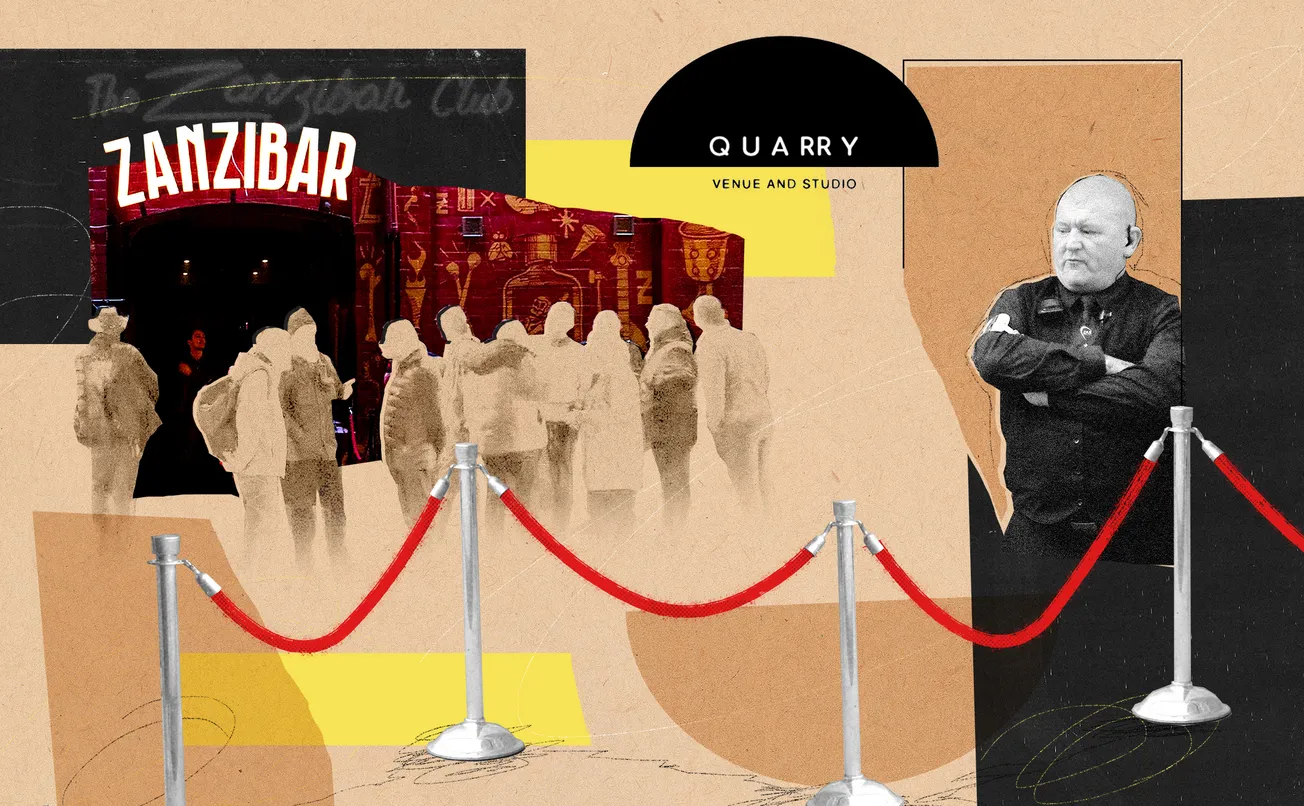
From the heights of Merseybeat and post-punk, the city’s long, dark decline into musical irrelevance
Hello there! Today's feature on Liverpool's music scene is free to read here on The Post. A little about us: we’re Liverpool's quality newspaper, delivered entirely by email. Sign up to our mailing list and get two totally free editions of The Post every week: a Monday briefing, full of everything you need to know about that’s going on in the city; and an in-depth weekend piece.
No ads, no gimmicks: just click the button below and get our unique brand of local journalism straight to your inbox.
A spectre is haunting Liverpool. A big fat spectre. It hangs over our cultural scene: a bloated abscess of hubris, nostalgia, arrogance, cultural sclerosis, complacency and simpering self-regard. I call it Yesterdayism.
The unwitting minions of this dark spirit are many: property developers, “artistic” directors, cabinet members for culture; promoters that book only tribute bands. They scurry around its bland, backwards-looking temples up and down Mathew Street. Its archons are John, Paul, George and Ringo: not the real-life flesh-and-blood beings, of course, but the kitschy effigies of Beatlelamia that adorn souvenir shops or gaze down from the Hard Day’s Night Hotel.
Yesterdayism sucks. It draws life from artists, promoters, organisers and clubs. At the same time, it blows. It belches hot air about us being a UNESCO “City of Music”. Because, so long as it’s true that “we” produced Billy Fury, Our Cilla and The Beatles; then Echo & the Bunnymen, The La’s and The Teardrop Explodes, and in more recent times (well, 20 years ago) The Wombats and The Zutons, then what need have we to nurture new talent? When the last music venue in this city closes, it will be to the sullen refrain of There She Goes.
The latest sacrifice to our city’s eldritch vanity is the Zanzibar Club on Seel Street. The “Zanzi”, which local impresario Tony Butler opened in 1990, announced this week it would close on 1st November. Some gig-goers and musicians I spoke to responded with grief; others felt the once-beloved club should’ve been taken behind the barn years ago.
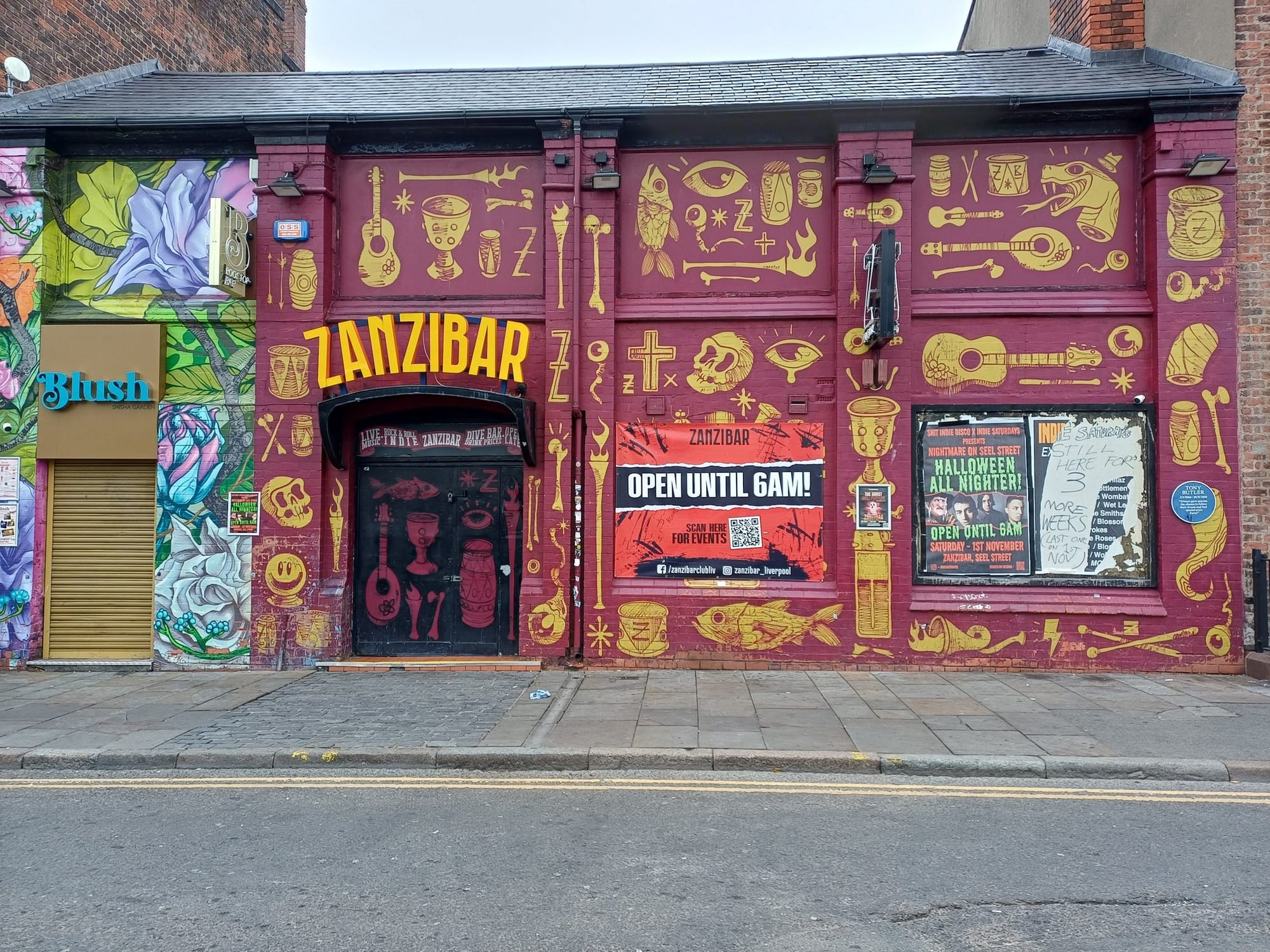
Simon Hewitt, a promoter who has put on shows, small festivals and charity events in Liverpool and across the country, tells me the Zanzibar developed a bad reputation in recent years – for cliquiness, a lack of promotion, and complete intransigence at responding to queries. “I cancelled one booking and [had to force] a refund through my bank,” Hewitt says.
“It's not been the Zanzibar for a while now,” agrees Rusty Apper, a touring musician from Southampton who's lived in Liverpool and began gigging here in 2017. Back then, the city’s music scene felt vibrant and exciting, but since then has become “insular and cliquey”, Apper says. He mentions that companies own entire streets that were once made up of independent venues, and now it’s a lot harder to get gigs if you’re not playing tribute to a more recognisable act.
By contrast, “Tony’s whole thing was promoting young Liverpool bands,” says Colin Cheers, who worked with the Zanzi’s Walton-born founder for 12 years. Butler, who died in 2018, managed to strike a balance between up-and-comers, artists on the cusp of greatness, and established big-name acts. As well as platforming The Coral, Noel Gallagher and The Zutons, Cheers describes how, on Saturday afternoons, the Zanzi would provide a free-entry, professional venue for teenage bands.
Cheers paints Butler as a passionate, hard-working, sometimes irascible promoter who, crucially, cared deeply about the city’s music scene. But when Cheers attempted to host a tribute to Butler at his old club, with profits going to a teenager cancer trust, he ran up against the same intransigence Hewitt describes. “I took the gig to District, who were the total opposite. Eric [Gooden] and Jayne [Casey] at District are absolutely fabulous.”
I reach out to JSM Company Group, the proprietors of Zanzibar since 2021. They say they can only identify one instance of a refunded event in their records, which was due to a scheduling clash between two promoters. "This refund was processed swiftly and successfully," says a spokesperson for Pub Invest Group Limited, JSM's leisure subsidiary.
I’m too short in the tooth to remember the OG Eric’s, but Butler’s approach sounds like that of Roger Eagle in the late 70s and 80s. And I am old enough to remember the last time Liverpool seemed vibrant musically: 12, 13 years ago, when the Zanzi was just one fertile plot in a wider ecosystem alongside MelloMello, the Kazimier, Leaf and the Magnet, all just memories now.
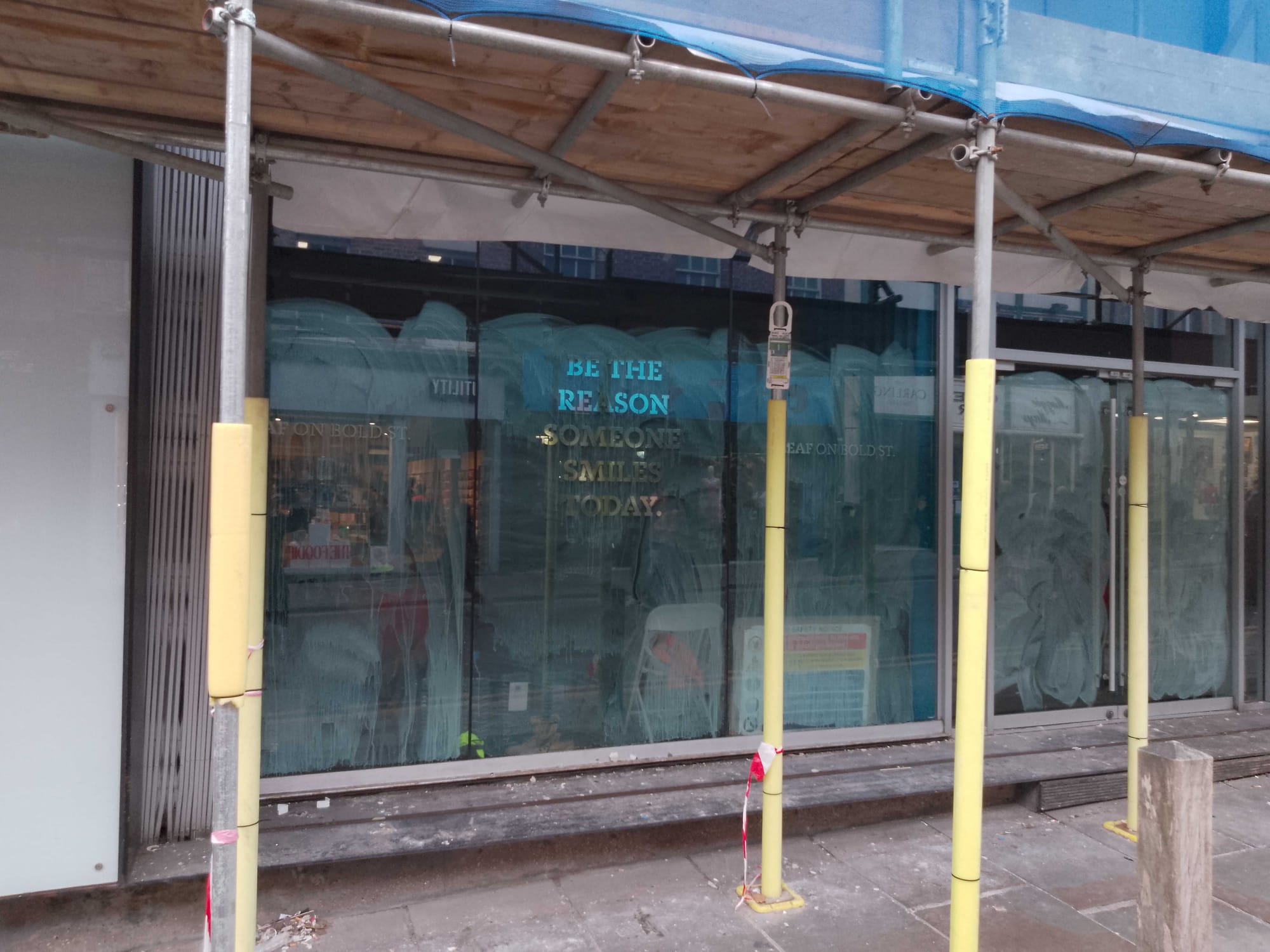
And let’s not forget the Lomax. The Cumberland Street club, which once hosted Radiohead, Oasis and The Verve, and was the test-site for Atomic Kitten, shut in 2015. Katherine Murph tells me she was in-house events promoter at Lomax for three years before it shut, and was a big part of the Save The Lomax campaign. For a decade, she hoped the Lomax could be “brought back to its former glory”. But last week, her Facebook post went viral for elegiac reasons: the Lomax had, in her words, “met the fate of ignorant gentrification, and officially made into a residential property”.
“I was the last person to pull down the shutter on the Lomax,” Darren Caine — tour manager for The Real People, one of the formative influences on Oasis — tells me.“I fought really hard to keep it open, but the only revenue stream we had without the drinks licence was charging corkage and room hire.”
The current owners of 34-36 Cumberland Street, JSM — them again! — tell me that although the upper floors are being converted into apartments, the basement level has been retained with the intention of reopening as a music venue. That's good news on paper, but judging by JSM's custody of Eric's and Zanzibar – not to mention other once-legendary independent clubs like Heebie Jeebies and the Krazyhouse (now "Electrik") — well, let's just say I won't hold my breath for the next incarnation of Radiohead to show up there.
If Yesterdayism kept these places alive, that would be great. But it doesn’t: it kills them and, if they’re lucky, reanimates their corpses decades later. (When I propose to JSM that they oversee bland, overpriced dives with no atmosphere, trading in on the names or locations until nothing of their former reputation survives, a spokesperson says that Pub Invest Group Ltd feel this characterisation is both "unfair and inaccurate", and pointed out that they host 167 artists every week across their "safe, accessible, and welcoming venues that continue Liverpool’s proud musical heritage while adapting to modern expectations.")
OK, so maybe you don’t share my fanciful cosmology about a Beatlemania-sized black hole drawing all and sundry into its vortex. Before you say it, I’m not against the city respecting its musical tradition: it’s not me who concreted the original Cavern or led the 1980 police raid on Eric’s. I didn’t build luxury apartments over the Kaz or submit plans to turn the Caledonia into a hotel.
So why does this keep happening in the “City of Music”? It’s not just that the place doesn’t know what they’ve got ‘til it’s gone, although that’s a big part of it.
Simon Hewitt highlights the layout of venues, and the lack of public transport between them, as an issue.
“Some punters — particularly women — ask themselves whether they really want to see that band enough if they'll feel unsafe getting there,” Hewitt says. He contrasts this with Sheffield and Manchester, which both have tram systems. He says those cities, as well as Leeds, York or even Bradford, “benefit from being more central and having a broader catchment area. Liverpool is out on the coast with half of its radius in the sea.” But we can’t just blame geography: Whitby and Brighton have got around those coastal restrictions by finding their niche, whether it’s goth in the former’s case or LGBT in the latter’s.
With all due respect to those places, unflattering comparisons to York, Bradford, Whitby and Brighton will stick in the craw for many readers. Rusty Apper has another one:
“Scousers will hate this, but even though there’s a lot less happening there, the Wirral has a better music scene,” he says. “Places in Birkenhead like the Swinging Arm are some of the few [venues] really making it happen.”
But the more I speak to people about Liverpool’s ailing music scene, the more Manchester is mentioned. It’ll be a bitter pill to swallow for many readers, but our North West rivals really do do things differently. And it’s not just about promotion, but an attitude to new music.
“Liverpool isn't the music city it once was,” Hewitt says bluntly. “There are plenty of indie bands wanting to imitate the Britpop experience their parents [had], and far too much acoustic. Rock, electronic, live dance, new wave, punk, jazz, soul — any other genre barely gets a look in. You don't really notice the apathy until you go to Manchester and see just how diverse the selection of live music there is.”
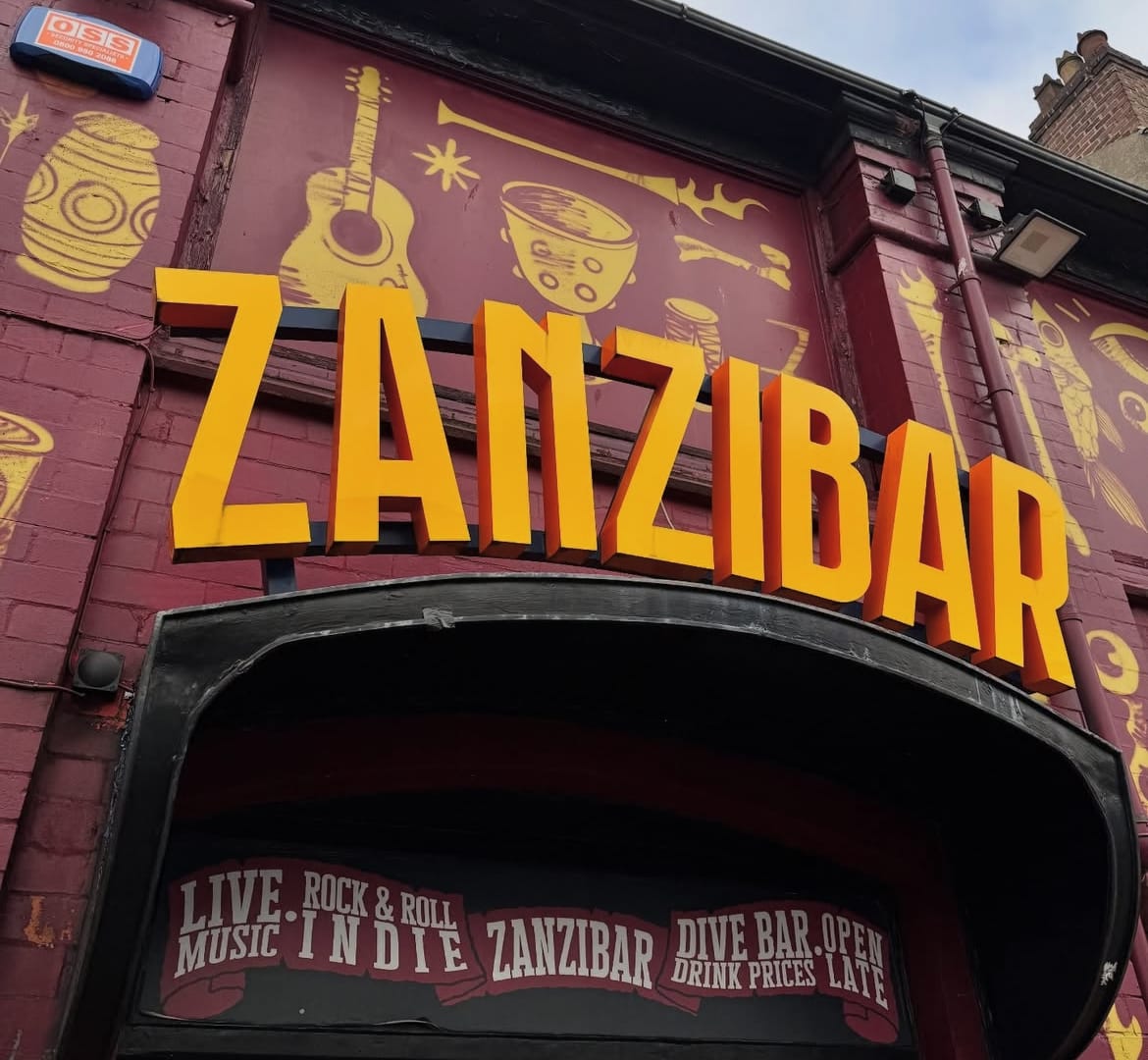
“The problem Liverpool has is that there are much better venues in Manchester,” says Phil Dolan. Phil owns RPM Studios in the Baltic Triangle, a rehearsal space that rents out rooms to more than 20 bands and artists per month. “With [Manchester] being so close, it’s easy for touring bands to just skip Liverpool,” Dolan tells me.
“If I was going to make a top 10 of music venues in Liverpool and Manchester, all 10 would be in Manchester,” says Marc Jones, a band promoter for more than 30 years. “As a music fan [in Manchester] chances are I could go and see an international or national class band every night of the week. That is the difference between a real music city and one that just says it is.”
I’ve come to Bold Street to meet Jones for a coffee. He’s booked gigs at nearly every venue in Liverpool, put on Oasis, Radiohead, and PJ Harvey, and for years ran Medication, the city’s popular student night.
But now? “It’s never been worse for bands and clubs,” he says. “To call Liverpool a ‘music city’ is just fake.”
For 45 minutes, Jones speaks with uninterrupted, encyclopaedic passion about Liverpool’s musical legacy and how it was betrayed. I get the impression he’s wanted to get this off his chest for a while. A former manager himself – his charges included Scorpio Rising, the Birkenhead funk-rock band — Jones describes how musicians progressed in the city’s heydays.
“You’d start out playing somewhere like [iconic punk rock venue] Planet X, to build up your core following,” he says. “Then graduate to the Polytechnic [now John Moores University], which would be about 450 capacity. After that, the Royal Court — about 1,000 capacity. And then the Mountford Hall, the Olympia, and the larger venues around the country.”
This “ecology,” as Jones puts it, still exists in Manchester, where, unlike here, they have invested and reinvested in venues over the past 30 years. “[Manchester has], on the smaller level, Deaf Institute, Gorilla, and Band on the Wall. Then they have [the next level:] the Albert Hall, the O2 Apollo and the Academy 1. And then the AO and, now, the Co-Op, too, which is actually a brilliant arena — and I don’t even like arena gigs.”
A clear path of progression. Jones contrasts this “tier system”, where musicians can hone their skills and build a following before “graduating” to a larger audience, with what Liverpool has now: some smaller venues that can fit 100-300 people, and then an insuperable leap to the M&S Bank Arena and Anfield stadium.
With all due respect to the smaller clubs that are doing things right – and here Jones mentions District, Quarry, and Birkenhead’s Future Yard — no act they book is going to follow Taylor Swift, Bruce Springsteen or Dua Lipa in selling out Liverpool FC’s ground. (The exception — Jamie Webster — proves the rule: he was more or less adopted by Liverpool players, which isn’t an easily replicable path to success.) These were all massive gigs that Jones says left no impact on the city’s wider music ecology — just as Eurovision or Radio 1’s Big Weekend came and went without trace.
Worse: some of those excellent 100-300 capacity venues are hanging on by the skin of their teeth. Jones mentions one club co-owner who hasn’t taken a wage in months, and another who is almost totally reliant on grants rather than ticket or beer sales.
“Let me put it this way,” Jones says. “If you were a tourist coming to the ‘city of music’ for a fortnight, hoping to come across the next generation of exciting bands… Well, how disappointed would you be?”
Jones also opines on what’s needed to turn things around.
“You need a music tsar,” he says — somebody appointed by either the council or the combined authority who has a deep knowledge of the city’s proud music lineage and a multi-decade vision for how to take it forward.
“The city has lost its music soul and identity,” Simon Hewitt agrees in an instant message. “It needs a cohesive approach, probably with the help of those who govern the city, to get it back.”
Before I head home, I walk — well, more sidle in mumbling indignance — up to the former site of the Magnet on Hardman Street. This is where Quarry has set up shop, after it was unceremoniously bounced from its Love Lane home a year ago by property developers. Quarry are one of the venues I’m told is doing it right, and a big part of what’s working is the membership model. A throwback, perhaps, to the old days of the Casbah Club in the late 50s and early 60s, where Mona Best charged half a crown for a year’s membership — initially to to keep ne’er-do-wells from the door, but the model also provided a steady income stream to compliment the more unpredictable nature of bar and club business.
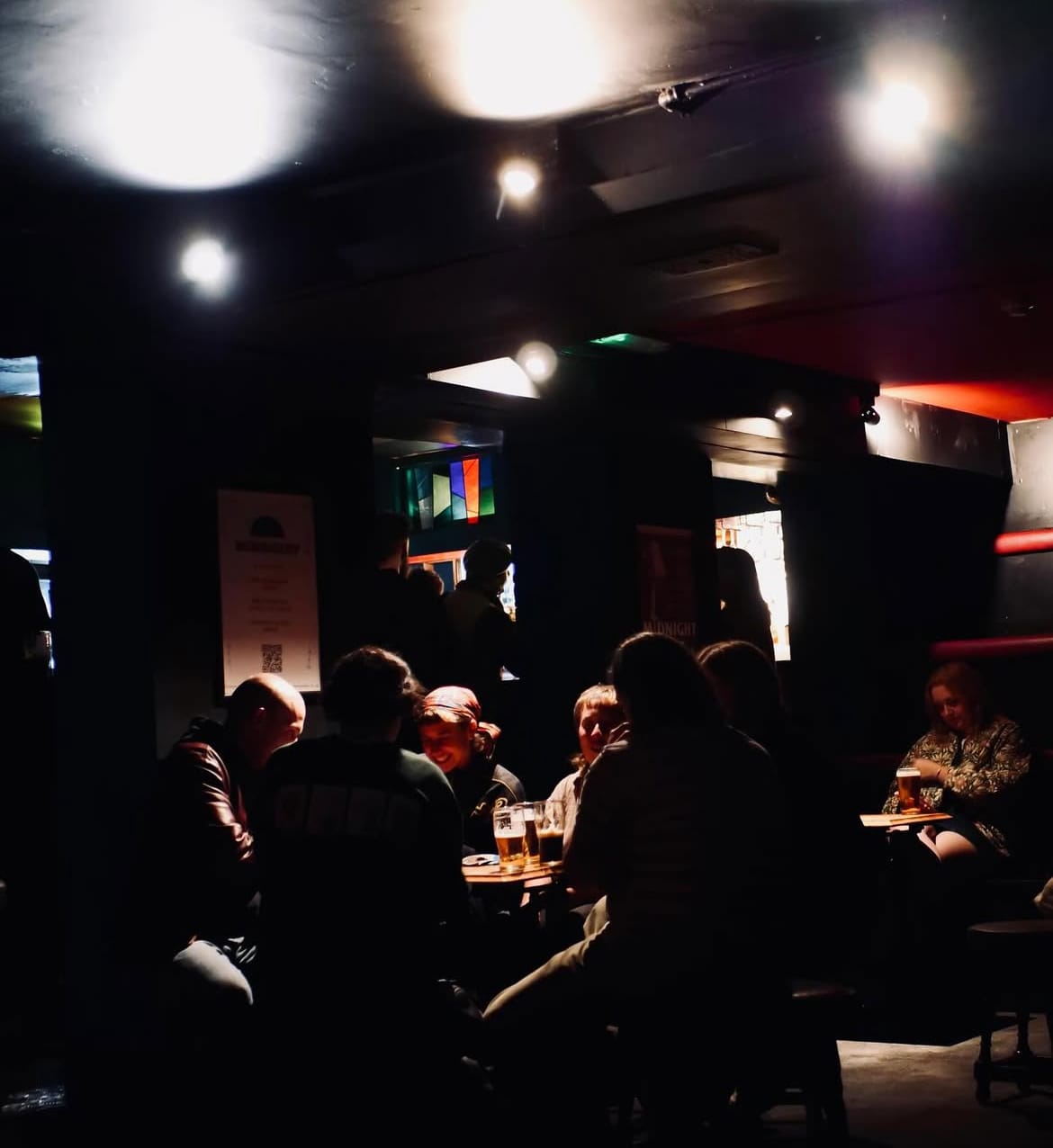
As I descend beneath Hardman Street, I’m impressed by the comforting dinge. And at 5.30pm on a Wednesday, there are more people than I’d expect, creating the atmosphere of a goth speakeasy. The bar staff — helpful and friendly — tell me it’s £5 to join, and for that you get money off drinks and gigs and one free gig a month.
Later on the phone, Chrissy Connor, Quarry’s co-founder, tells me this is the third time they’ve experimented with a membership system, but this non-tiered flat rate seems to be working so far. We also discuss the city’s musical ecology, several of Quarry’s management not taking a wage but doing it for the love of the game, and Chrissy’s passion for platforming experimental or out-of-left-field music — exactly the kind of brain-altering, taste-changing sounds a whole generation of Scouse kids may have missed out on from spending their formative years under lockdown. Despite the challenges and what Chrissy calls the “complacency” of the “City of Music” designation, he and his team are optimistic.
“I think there is an excitement that Liverpool's on the cusp of a change,” he says. “Some forms of music just don't make sense until you've experienced it in person,” and venues like Quarry can now offer that opportunity.
If my wife wasn’t eight months’ pregnant, meaning my long gig-going drought is likely to continue, I might have signed up on the spot. According to many of my interviewees, I’m part of the problem: indicative of a far more general fall-off in fans actually going to see music live.
“We’ve lost the spontaneous gig-goer,” Darren Caine tells me. “Unfortunately, people only go out to see a band if their mates are in it.” Jones says that selling tickets ahead of time in Liverpool has always been a problem for touring bands, too.
We’ve all got an excuse: rising beer prices, cost of living and, for Wirralites like me, the lack of a night bus for many years. Parking charges are, to quote Simon Hewitt, “another nail in the coffin”, but other cities manage to have a vibrant nightlife and a strong gig-going culture even without subsidising motorists. It’s easy to blame the council, city hall or homogenising property developers like JSM. And it’s even easier to blame a nebulously conceived cosmic horror like Yesterdaysim. But if people like me who profess to care about music just aren’t turning up, we lose the God-given right to moan.
Thanks again for reading today's Post. Remember: it's free to join our mailing list, and you'll get two totally free editions of The Post every week.
No ads, no gimmicks: just click the button below.
If someone forwarded you this newsletter, click here to sign up to get quality local journalism in your inbox.
If you’d like to sponsor editions of The Post and reach over 35,000 readers, you can get in touch or visit our advertising page below for more information

Comments
Latest
Northern Powerhouse Rail is back on track. We think...
The clockmaker of Wavertree
One of Merseyside’s oldest sports clubs still play every Saturday
Does Liverpool have a ketamine problem?
The Zanzibar, the Lomax, and how Liverpool botched its musical legacy
From the heights of Merseybeat and post-punk, the city’s long, dark decline into musical irrelevance